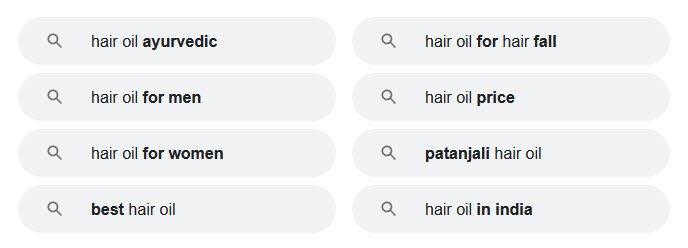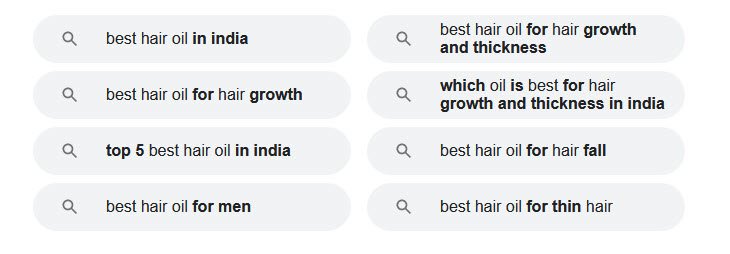
If you’re new to the whole internet marketing thing, you’re probably one of the many people who hear about SEO (Search Engine Optimization) without having a clue what it is or how to go about it.
SEO is a marketing discipline that focuses on increasing the online visibility of any site or page or blog in the organic search results. This can include a combination of creative and technical elements with varying results, but all with the goal of improving the site’s natural ranking on search engines.
Do you need SEO for your website?
One of the questions people mostly ask about SEO is whether they need it for their website. Well, that depends.
Do you want a steady flow of organic traffic to your site?
By organic, we mean you aren’t paying to have your website promoted on search engine results pages (SERPs). Yes, you also have the option to use paid traffic to boost your search engine marketing through what’s called PPC (Pay-Per-Click).
Suggested Read: The Ultimate 2022 Guide of Successful Dropshipping
But for those with no budget to commit to paid ads, you’ll need to stick with White Hat SEO. The great thing about SEO is that the traffic you build up is consistent and ideal for long-term goals. PPC is great for quick results, but the traffic won’t be as valuable over time. Now that you understand what SEO is and how it differs from paid traffic, it’s time to learn some basic search engine optimization tricks for affiliate marketing.
Choosing the Right Keywords
Combining affiliate marketing with SEO relies heavily on finding products that have a great deal of search traffic. To find out what these products are, you’ll need to do detailed keyword research.
Keywords are ideas or topics that represent what your content is about. In SEO, they can be words or phrases entered into search engines.
A great way to start with SEO for a page on your blog is to begin with the product in mind. Once you’ve chosen a product to promote, go to Google Keyword Planner (or use any other keyword research tools) and enter a main keyword relating to the product.
For example, if you want to promote hair oil, your main keyword would be “hair oil ayurvedic, hair oil for men, hair oil for women, best hair oil“.

Click the Get Ideas button and wait for the results to pour in.
You’ll see which keywords are most popular from the ‘Average monthly searches’ column. Don’t be afraid to use high-competition search terms, especially if you’re using SEO for long-term results, but keep in mind that the more popular a term is, the harder it will be to rank for.
Go through at least the first 10 pages of keyword ideas and pick out related keywords you can use for your affiliate site. You’ll be using these keywords for creating content and optimizing your site. And that’s it. You now know basic keyword research for affiliate marketing!
Using Google’s Search Results
Another SEO technique to try is using Google’s search results for keyword research. It’s one of the easiest things to do yet many people overlook it. Have you heard of Google’s suggested feature? This is where Google automatically tries to complete search queries and lists other keywords people search for that are related. You’ve probably seen this before without taking too much notice.
Example:
- best hair oil for hair growth
- top 5 best hair oils
- best hair oil for men
- best hair oil for hair growth and thickness
- which oil is best for hair growth and thickness
- best hair oil for hair fall
- best hair oil for thin hair

You can use these keywords for page titles, content, or inspiration for making more targeted pages. And because Google suggesting them, they must be relevant to the majority of the people who use similar search queries.
Related Searches
After you conduct a search at the bottom of the page you will also find a section containing related searches that other people have searched for. This is another goldmine of useful keywords and search terms that you can use for alternate keywords on your page.
Analyzing Page Titles from Competitors
Assuming your competitors have done their SEO research and used the best practices, you can get plenty of ideas on what the best keywords are from page titles.
Check Other Search Engines Too
You can also take things a step further by using the above features in other search engines like Bing and Yahoo!. Both offer suggestions for search queries and related searches, but you’ll get a variety of results that offer quick insight on what people are interested in or looking for.
Keyword Research Tools
Aside from using search engines for keyword research, you can also use the following tools:
1. Google Ad Words: Keyword Planner
This is the top pick of even the most seasoned SEO experts. Not only is it a great tool for starting affiliate marketers, but it continues to be a valuable companion even as you grow your site’s content.
Keyword Planner also provides other ideas for you to try in addition to your search term. Of course, not all of them will work, but pay close attention to all of the keywords and ideas because you might just find a gem.
Remember that the result this tool produces is straight from Google, which is most likely the search engine you’re targeting for. What better way to get info than straight from the source itself?
2. Word Stream Free Keyword Tool
Word Stream’s Free Keyword Tool is only free for the first 3o searches but it’s worth trying if you want to know what Word Stream has to offer. It works like any other keyword research tool. You enter your keyword and let it do its job.
If you want more than just the basic tool, you can try also try their Free Keyword Niche Finder for more useful results. Free Keyword Niche Finder helps you find a profitable niche to start with. If you’ve yet to decide on what niche to start with, this is a tool that can point you in the right direction.
3. Ubersuggest
Although the Google Ad Words Keyword Planner may be the top tool for keyword researchers, most would argue that you aren’t getting the whole picture unless you also run an Ubersuggest search. Ubersuggest produces keywords that you won’t find on Keyword Planner. The list will be exhaustive so expect to spend some time going through all of it.
Keywords work like a compass for increasing your site’s visibility. They tell you which direction to go. This is why Keyword research is important, especially at the beginning stages. You don’t want to hustle not knowing where all of it will lead to. Always be clear about what you want to achieve. Keywords will not only provide clarity, but also increase the relevant traffic blog.
You may also like:- 5 Reasons to Use X (Formerly Twitter) for Internet Marketing
- Top Ten Tips to Increase Web Traffic
- 175 Most Profitable Blog Niche Ideas to Write About
- 10 Key Benefits of Being a Blogger – A Comprehensive Guide
- Affiliate Marketing in a Nutshell – A Comprehensive Guide
- The Importance of an Affiliate Program to Membership Sites
- 10 Strategic Tips on How to Increase Website Sales
- 10 Profit Boosting Tips To Increase The Success Of Your Affiliate Program
- Affiliate Marketing – Surprising Ways to Make It Work for Your Business
- From Website to Sales – Why Internet Marketing Is More Than Just Setup








